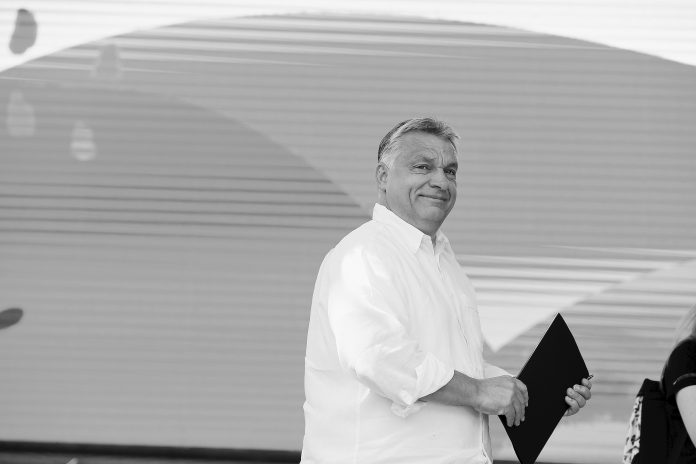
Hungary’s prime minister said Saturday that the European Union has made “grave mistakes” in the past five years regarding immigration and the economy.
The European Commission needs to allow a council of EU interior ministers to decide migration issues, comparing their role to the so-called Eurogroup, the finance ministers of the countries using the euro currency, Prime Minister Viktor Orban said at a Hungarian cultural festival in the Romanian town of Baile Tusnad.
Orban also took exception to what he described as the “political activism” of the European Commission, which has launched numerous procedures against the Hungarian government on issues where it is considered to be in contravention of EU rules. Over the years these, have included objections to laws seen as limiting the rights of asylum-seekers or intimidating civic groups that help them, or special taxes targeting, for example, media companies independent of the government, banks and foreign companies.
“The commission … needs to behave as the guard of the EU agreements and abandon political activism,” Orban said. “It is not a political body, it should not have a program and it should not carry out political attacks on members states.”
Orban is scheduled to meet the European Commission President-elect Ursula von der Leyen on Thursday in Brussels. Orban supported her candidacy and has indicated that he expects her to have a more conciliatory position toward Hungary and other countries in the region often at odds with the majority EU stance on issues like migration and environmental standards.
Hungary is also facing a so-called Article 7 procedure initiated by the European Parliament because of concerns about the rule of law, which the Hungarian government claims is motivated, as with practically any criticism it has received in the past four years, by its “zero tolerance” of migration, especially by Muslims.
Regarding the economy, Orban said it was time to return to the ideal of a “competitive European economy,” with greater job creation and “tax cuts everywhere.”
Hungary would likely need two more stimulus plans to protect its economy next year, Orban said, because of slowing economic growth in Western European countries, Hungary’s main trading partners.
A stimulus plan announced in May included mainly tax cuts, investment incentives and increased funds for research and development projects.
Orban, who made headlines after his 2014 speech in Baile Tusnad detailing his efforts to build an “illiberal state,” spent roughly half of his 52-minute address on the subject, attacking liberalism while equating “illiberal politics” with “Christian liberty” and its protection.
Orban said Christian liberty was under attack on both an internal front — liberals wanting to abandon Christian culture — and an external one, migration.
“The consequence, if not the aim, of migration is that it destroys Europe as we knew it,” Orban said.
Orban, 56, who was elected to his third consecutive four-year term — and fourth overall — in April 2018, said that in the coming 15 years the only way to strengthen Hungary would be to oppose “the liberal zeitgeist and liberal internationalism.”q















